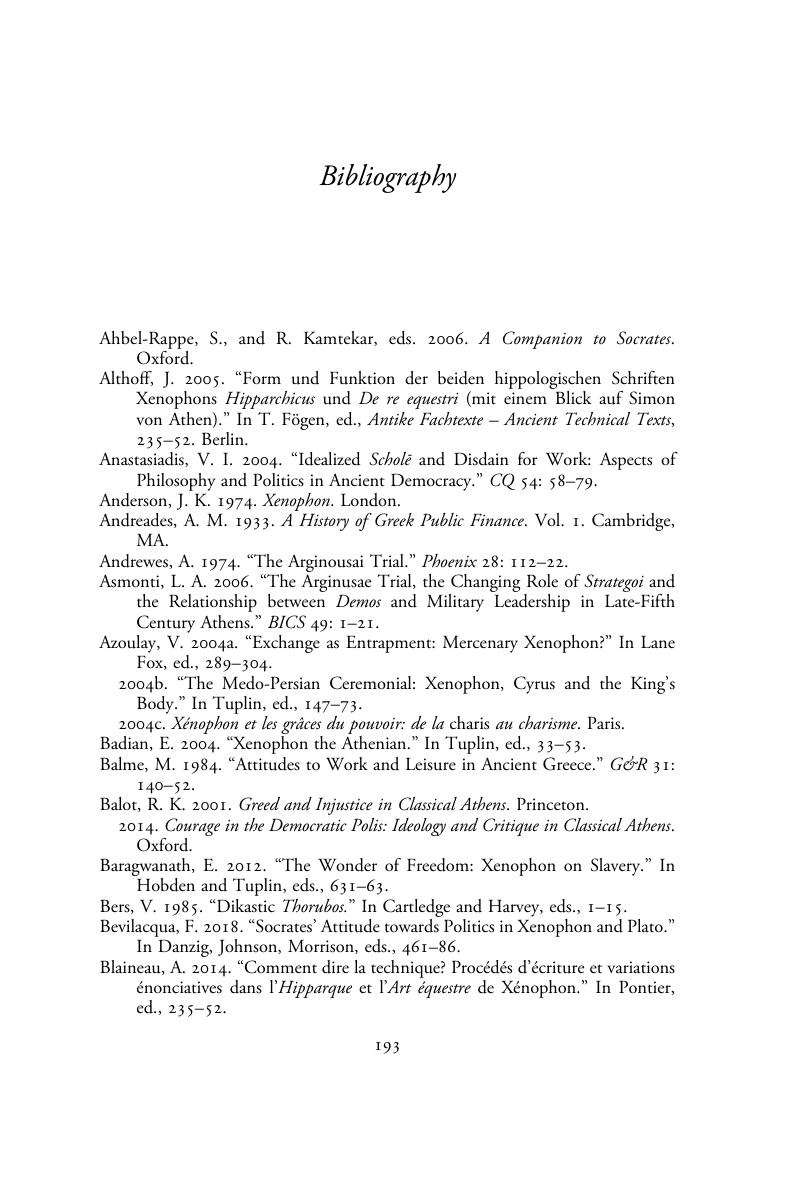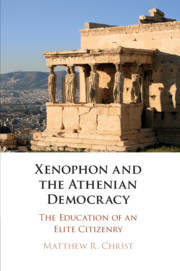Book contents
- Xenophon and the Athenian Democracy
- Xenophon and the Athenian Democracy
- Copyright page
- Dedication
- Contents
- Acknowledgments
- Introduction
- Chapter 1 Athens in Crisis in the Hellenica
- Chapter 2 Politics and the Gentleman in the Memorabilia
- Chapter 3 Work, Money, and the Gentleman in the Oeconomicus
- Chapter 4 The Education of Callias in the Symposium
- Chapter 5 Xenophon as Expert, Advisor, and Reformer in the Hipparchicus and Poroi
- Chapter 6 Xenophon the Democratic Orator
- Conclusions
- Bibliography
- Index of Ancient Citations
- General Index
- References
Bibliography
Published online by Cambridge University Press: 28 August 2020
- Xenophon and the Athenian Democracy
- Xenophon and the Athenian Democracy
- Copyright page
- Dedication
- Contents
- Acknowledgments
- Introduction
- Chapter 1 Athens in Crisis in the Hellenica
- Chapter 2 Politics and the Gentleman in the Memorabilia
- Chapter 3 Work, Money, and the Gentleman in the Oeconomicus
- Chapter 4 The Education of Callias in the Symposium
- Chapter 5 Xenophon as Expert, Advisor, and Reformer in the Hipparchicus and Poroi
- Chapter 6 Xenophon the Democratic Orator
- Conclusions
- Bibliography
- Index of Ancient Citations
- General Index
- References
Summary

- Type
- Chapter
- Information
- Xenophon and the Athenian DemocracyThe Education of an Elite Citizenry, pp. 193 - 204Publisher: Cambridge University PressPrint publication year: 2020



